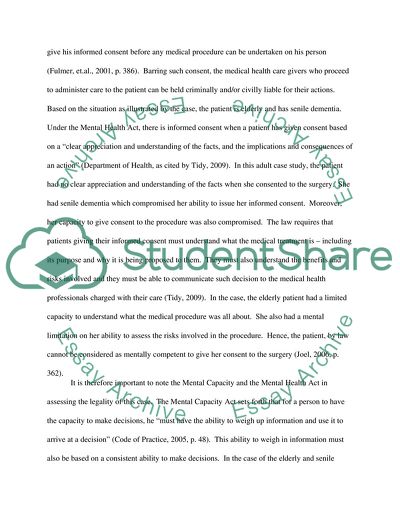Cite this document
(Ethics and Law in Nursing Case Study Example | Topics and Well Written Essays - 2500 words, n.d.)
Ethics and Law in Nursing Case Study Example | Topics and Well Written Essays - 2500 words. https://studentshare.org/health-sciences-medicine/1732024-ethics-and-law-in-nursing
Ethics and Law in Nursing Case Study Example | Topics and Well Written Essays - 2500 words. https://studentshare.org/health-sciences-medicine/1732024-ethics-and-law-in-nursing
(Ethics and Law in Nursing Case Study Example | Topics and Well Written Essays - 2500 Words)
Ethics and Law in Nursing Case Study Example | Topics and Well Written Essays - 2500 Words. https://studentshare.org/health-sciences-medicine/1732024-ethics-and-law-in-nursing.
Ethics and Law in Nursing Case Study Example | Topics and Well Written Essays - 2500 Words. https://studentshare.org/health-sciences-medicine/1732024-ethics-and-law-in-nursing.
“Ethics and Law in Nursing Case Study Example | Topics and Well Written Essays - 2500 Words”. https://studentshare.org/health-sciences-medicine/1732024-ethics-and-law-in-nursing.


